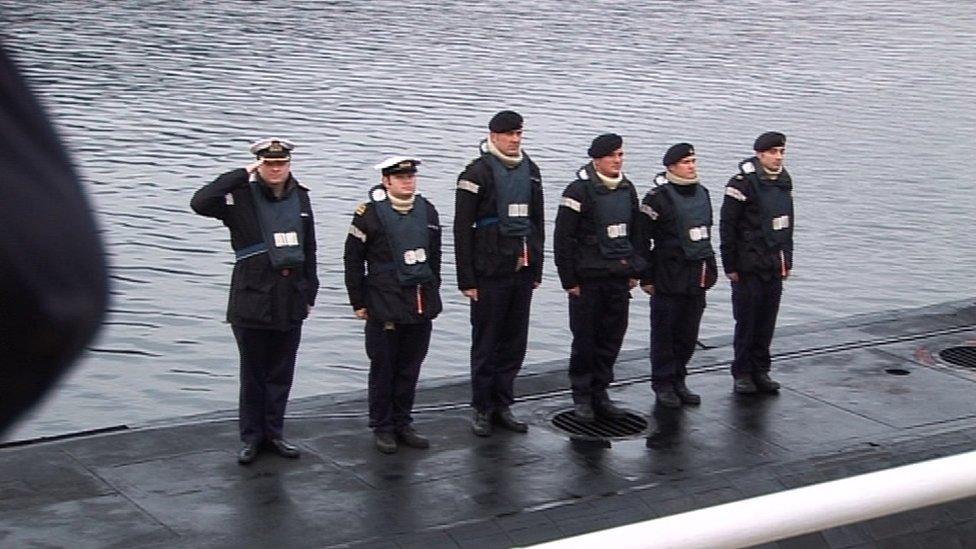Ulster Unionists set timeline for leadership election
- Published
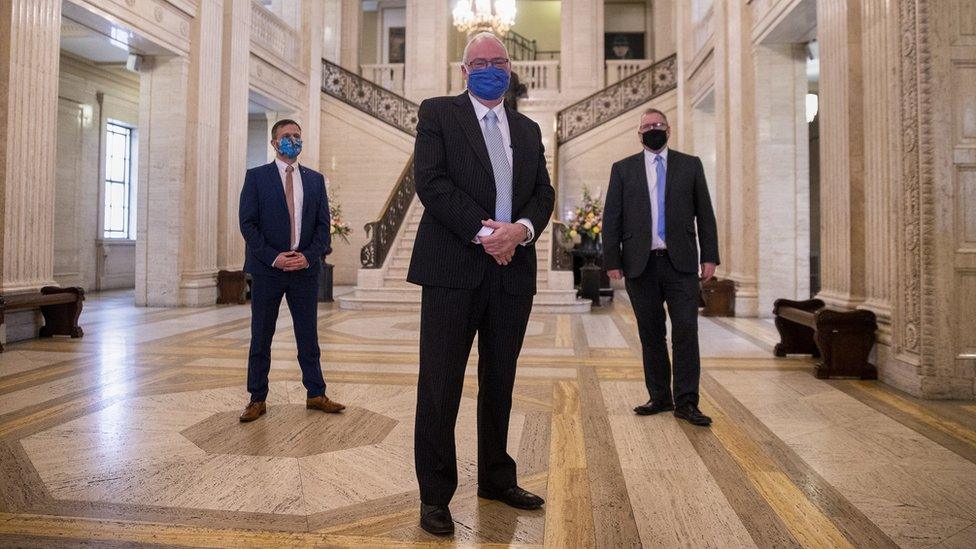
There is speculation that Robbie Butler may join Doug Beattie in the battle to replace Steve Aiken (centre)
The Ulster Unionist Party Executive met on Tuesday and agreed the process for selecting a new leader to succeed Steve Aiken.
Nominations will open at 09:00 BST on Wednesday morning and close at midday on Monday
So far only the Upper Bann MLA Doug Beattie, a former Army captain, has said he is in the running.
It comes after Steve Aiken announced his decision to step down as party leader.
Mr Aiken said the party was "not breaking through" and had "not been working as well as it should be".
Mr Aiken has been in charge since November 2019 and will remain so until his successor is found.
Following the meeting, UUP Chairman Danny Kennedy said: "On behalf of the party executive I express my sincere thanks and appreciation to Steve Aiken for his work and commitment as party leader.
"His dedication to duty, his integrity and decency has been impeccable. The entire party wishes Steve, his wife Beth and his family well for the future."


Just as the DUP find themselves in the process of choosing a new leader, now the Ulster Unionists are just a few steps behind.
Tonight, in a virtual meeting, the UUP executive came together to agree a timetable.
We know one of the names in the frame - the Upper Bann MLA Doug Beattie - seen by many as the favourite to succeed Steve Aiken.
Lagan Valley MLA Robbie Butler is also taking soundings about a possible challenge.
The party's members will have the final say - it is a process to which many are pretty accustomed.
In the past 16 years, the Ulster Unionists have had five leaders - very soon they will get ready to welcome number six.

Speaking about his leadership bid, on BBC NI's Good Morning Ulster on Tuesday, Mr Beattie ruled out a single unionist party.
He said that if elected as leader of the party he would "challenge the DUP at every single level".
"There will not be one unionist party, that's fact," he told the programme.
"It does not help unionism for the DUP and the UUP to come together."
Mr Beattie said the UUP did not have an "identity crisis", but that its messaging did need to be refined and simpler.
He also said he would push for an alternative to the Northern Ireland Protocol, which he said was "damaging the Belfast Good Friday Agreement".
Mr Beattie said he "loved" the Irish language and it needed to be "funded and protected", but he did not support an Irish language act.
"My issue is an act, because what is being proposed with an act I believe could end up driving more division in Northern Ireland."
Mr Beattie said he would not be "taking advice" from the Loyalist Communities Council (LCC) and if he met them, "the first thing I would be asking is when they will be disbanding".
The LCC was set up in 2015, with the backing of the three main loyalist paramilitary groups, the Ulster Defence Association (UDA), the Ulster Volunteer Force (UVF) and the Red Hand Commando.
It is not a proscribed organisation and is said to represent a range of individuals and views from the wider Protestant unionist loyalist community.
Mr Aiken has said the UUP continued to do what was right not only for unionists but for all in Northern Ireland.
In his letter of resignation, Mr Aiken said he had taken the party as far as he could.
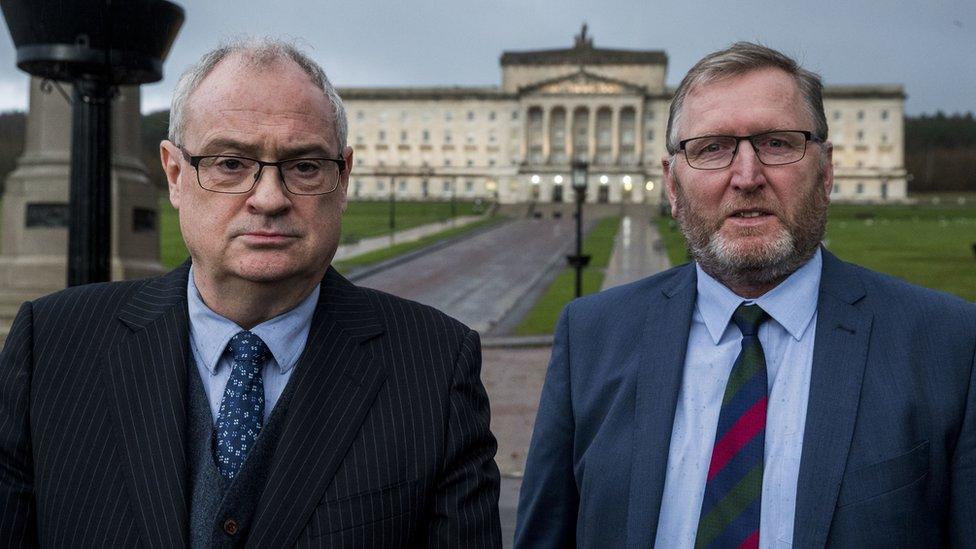
Upper Bann MLA Doug Beattie (right) has declared his bid to succeed Mr Aiken (left)
He said it had been a "privilege to lead in these difficult and trying times" and he took pride in the party's decision to take on the challenging health minister portfolio when Stormont was restored in 2020.
His departure follows the resignation of Arlene Foster as DUP leader and first minister after an internal revolt.
Responding to Mr Aiken's decision to step down, Mrs Foster said she found him "very straightforward and honourable" as a fellow party leader.
- Published10 May 2021
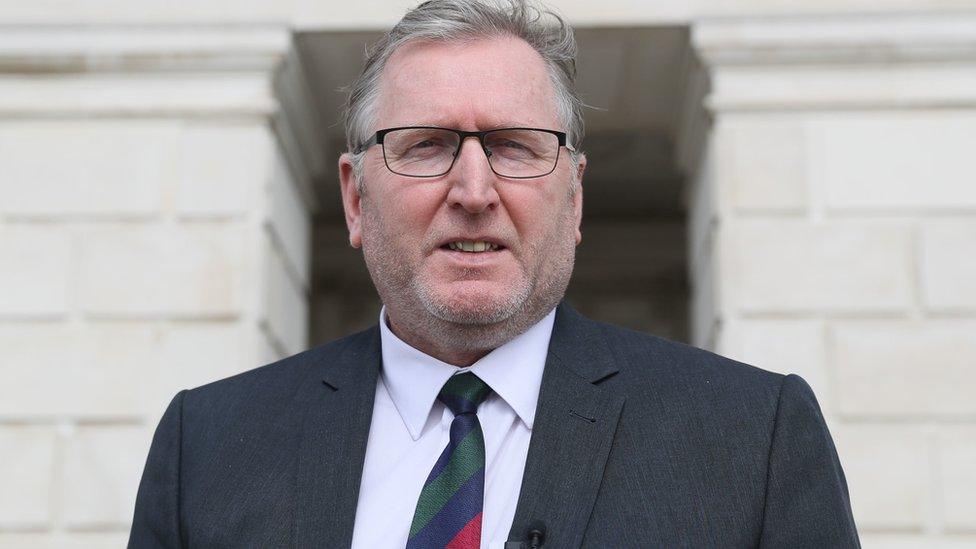
- Published8 May 2021
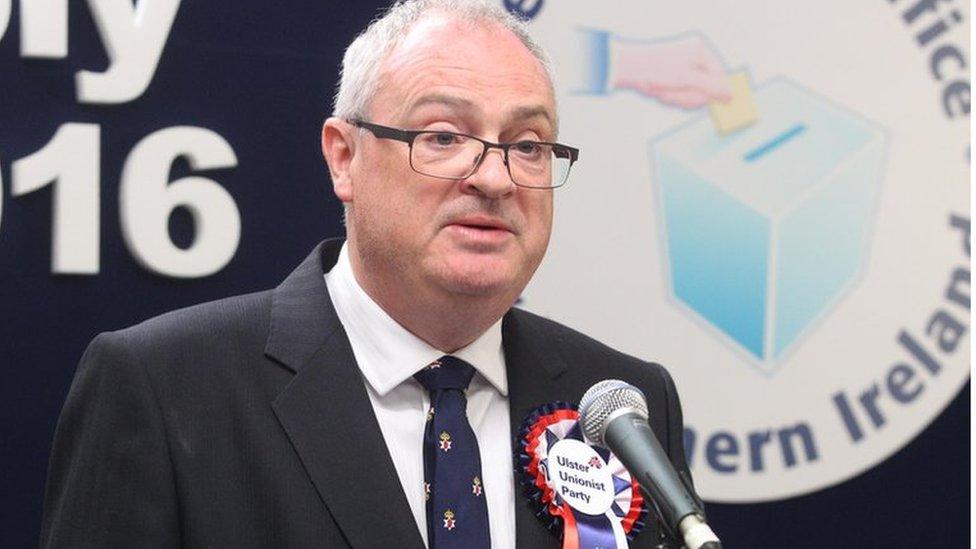
- Published10 May 2021
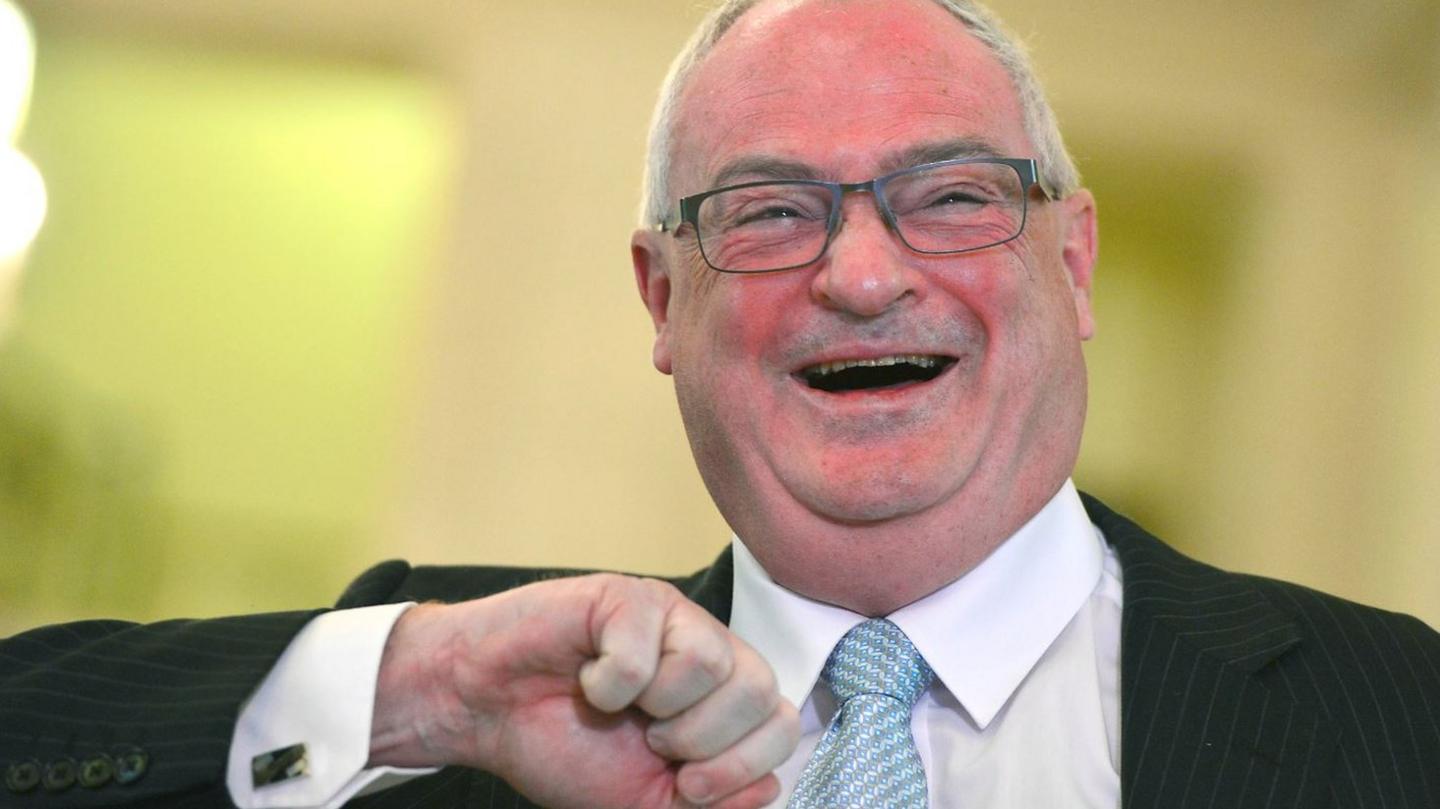
- Published8 May 2021
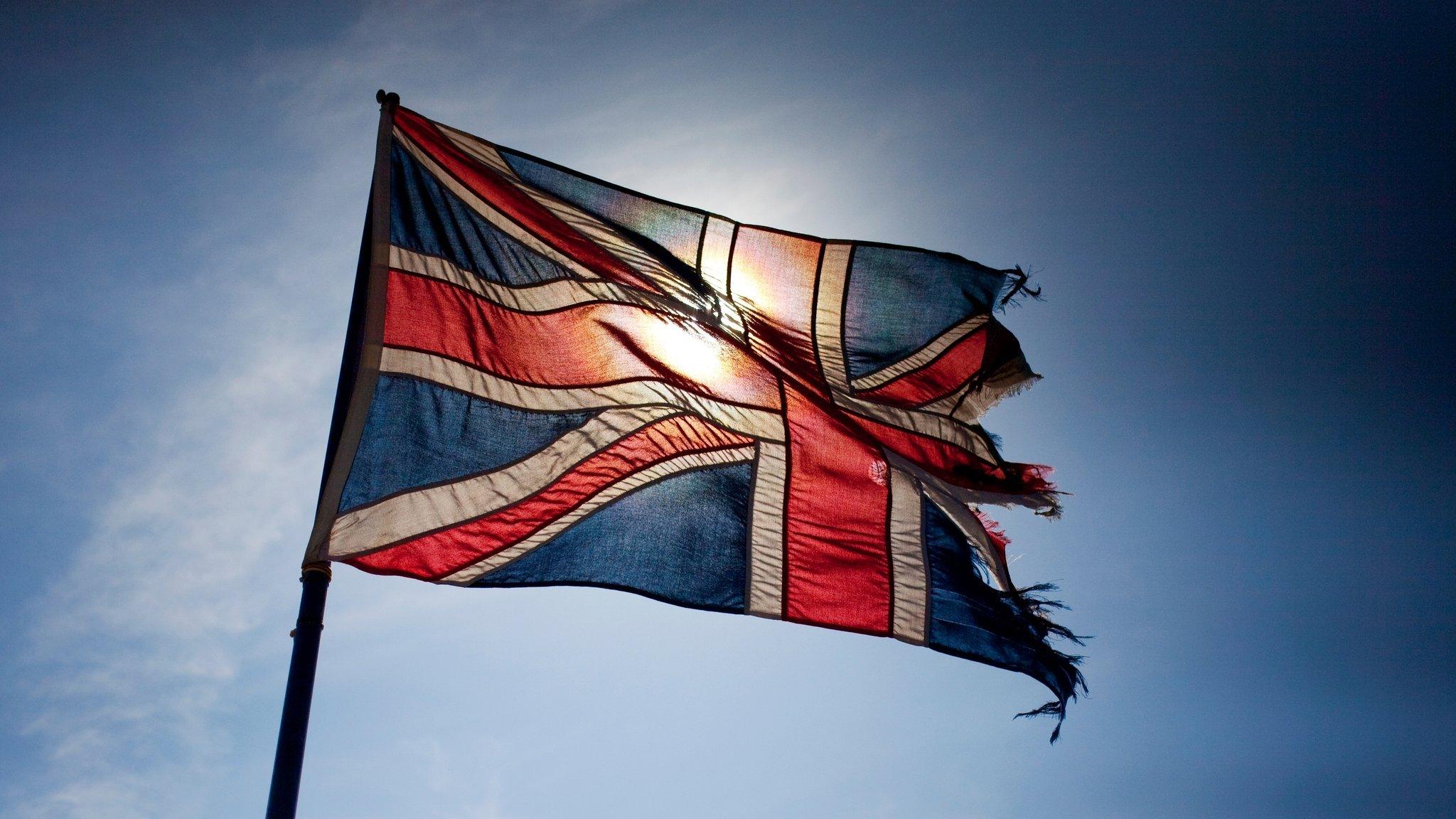
- Published8 May 2021
